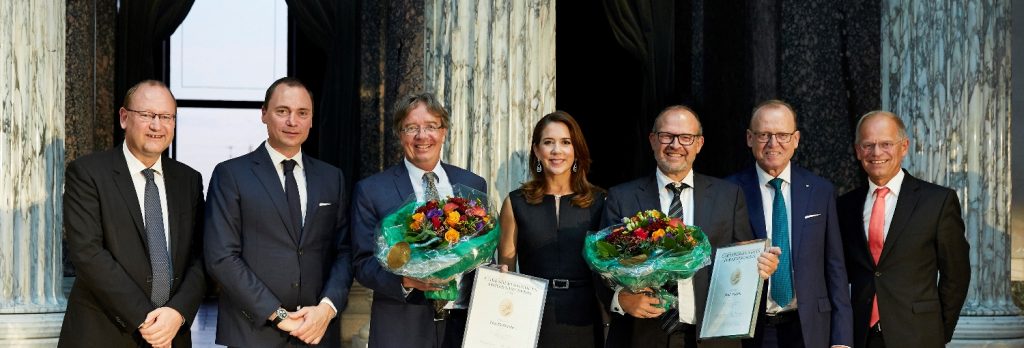Former head of center Poul Nissen receives the Carlsberg Foundation Research Prize 2018
The Carlsberg Foundation recently awarded its Research Prizes 2018, and one of this year’s recipients is Professor Poul Nissen, the former head of the DNRF center PUMPkin and current principal investigator at the DNRF center PROMEMO. He received the award for his groundbreaking work in structural biology.

On Sunday, September 2, Professor Poul Nissen received the Carlsberg Foundation’s Research Prize 2018 for his groundbreaking research in structural biology. Among the reasons for awarding the prize to Professor Nissen is that he “is, beyond comparison, the most highly profiled structural biologist in Scandinavia.” From 2007-2017, Nissen was head of the Center for Membrane Pumps in Cells and Disease (PUMPkin) at Aarhus University, and today, he is principal investigator (PI) at the Center for Proteins in Memory (PROMEMO), led by Professor Anders Nykjær, and PI at the Lundbeck Foundation’s center BRAINSTRUC.
Nissen’s work centers around cellular research at the molecular level, focusing on the structure, function, and mechanisms of biomolecules. His primary research areas include membrane proteins such as ion pumps, which maintain high concentration differences of, among other things, sodium, calcium and potassium inside and outside the cell, including the sodium-potassium pump, discovered by Nobel Prize winner Jens Christian Skou. Nissen’s research has also focused on other proteins that are of major importance in neurobiology.
“It is a huge recognition that makes me deeply grateful and proud on behalf of my many wonderful colleagues. I have worked with many incredibly talented young people who have since become very successful. I regard this award as a great acknowledgment of the enormous effort of many people who showed me confidence when I had some new ideas for our research projects,” Nissen said to the Carlsberg Foundation in connection with the award.
This year’s second prize winner was affiliated with the DNRF Center CREATES
This year’s second prize winner is Professor Tim Bollerslev, Duke University, who received the award for his research within finance and time-series econometrics. Tim Bollerslev has been affiliated with the DNRF centre CREATES led by professor Niels Haldrup at Aarhus University from 2007-2017.
More about the awarded prize for Bollerslev can be found here
About the prize:
The Carlsberg Foundation Research Prize was instituted in 2011 to mark the bicentenary of the birth of founder J. C. Jacobsen. The objective of the Carlsberg Foundation Research Prize is to support active researchers, in Denmark or abroad, who have made vital contributions to basic research and enjoy great scientific recognition. The prize is meant to encourage further research and can be spent, as required, on research stays abroad, field work, equipment, or salary for scientific assistance. The prize is awarded on the recommendation of the Royal Danish Academy of Sciences and Letters. Each prize amounts to DKK 1 million. From this, DKK 250,000 is a personal gift and DKK 750,000 is for research. (Source: Carlsberg Foundation)
An interview with Poul Nissen and reasons for awardingthe prize can be found here
More about the Carlsberg Foundation Research Prize can be found here
